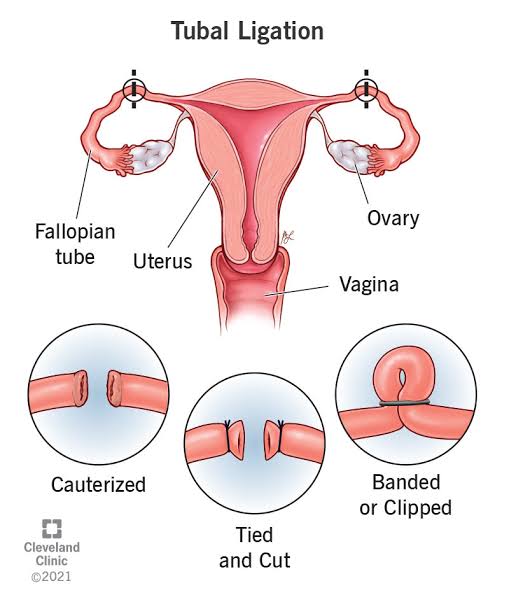In a world where motherhood is often seen as the ultimate goal for women, I am drawn to the stories of women who choose permanent birth control
Imagine being asked if you want children, only to respond with “never” – and mean it. For a growing number of women, choosing not to have children is fast becoming a deliberate and empowering decision. For centuries, women have been socialised to prioritise motherhood and childrearing. Similarly, the notion that a woman’s worth is tied to her ability to bear children has been deeply ingrained in many cultures.
However, with the progress in reproductive technology and increased awareness of women’s rights, more women are choosing to forgo motherhood. But what drives this choice, and what does it reveal about our collective attitude towards motherhood, identity, and personal freedom?
These questions sparked an enlightening conversation with Katherine Rundell, a writer at UKWritings who dared to challenge the norm by undergoing tubal litigation, a permanent birth control procedure that erases all possibility of bearing children.
What is the drive behind this unconventional choice?
The decision to remain child-free is a deeply personal and multifaceted one. Some women are driven by a desire for autonomy and independence, unencumbered by the responsibilities and sacrifices that come with parenthood, particularly, motherhood. When I asked about her reason for the decision to be child-free, Kathrine said, “As a woman in my thirties, I have always been certain that motherhood would not be a part of my life plan. This knowledge wasn’t an intense revelation, but rather an understated truth I held throughout my life.”
As opposed to the belief that children are women’s sole source of fulfilment, she adds that “travelling to new places and reading books while spending time with friends represent my main passions outside my professional life. Being child-free feels like a natural path because it aligns with my identity and the life I want in future.”

Aside from personal aspirations, some women attribute their decision to remain child-free to recognising that the demands of motherhood can often limit professional ambitions. According to research conducted in the tech industry, 80% of women in tech considered taking time off from work to care for their children, and 70% of them felt it was going to be difficult to get back into their careers if they did take time off. On the contrary, none of the men in the study ever considered taking time off their careers for their kids.
A multitude of reasons, including these and many others unique to each individual, converge to inspire and empower women to embrace a child-free lifestyle.
Taking the bold step
Although temporary birth control provides short-term solutions for women, I have always believed they were invented as punishment for women who choose to not submit to the supposed natural order of childbearing. Interestingly, Mayo Clinic reveals that using birth control pills increases the risk of some cancers, including cervical cancer, and the risk declines after stopping the use of birth control pills. A 2023 study also found that contraceptive pill users may face up to a 130% increased risk of depression. This proves that while temporary methods seem like better options, they expose women to great risks.
To provide a lasting alternative, some women like Katherine have opted for permanent alternatives. This comes after the decision to ditch the physical and emotional burdens of hormonal management, making extensive research and getting medical consultation. “I chose tubal ligation because it best matched my requirements —delivering effectiveness and permanency, along with freeing me from worry.”
Tubal ligation is a surgical procedure that involves blocking or severing the fallopian tubes to prevent pregnancy, and it is often referred to as “getting your tubes tied.” Other methods of permanent birth control include Adiana, Bilateral salpingectomy, hysterectomy, essure, etc.

In a bid to foster openness about the procedure, Katherine shares her experience. “The procedure was problem-free, despite my initial nervousness. The recovery period also extended beyond my expectations, since I was sore for several days and needed to rest for approximately one week. After a couple of weeks, I recovered physically to my normal state and unexpectedly gained a very strong mental relief.”
Women’s reproductive autonomy is not without prejudice
Despite the growing number of women choosing to be child-free, societal pressures remain. Before getting the procedure done, medical experts emphasise the need for emotional support, but that may not always come easy. Katherine particularly expresses dealing with opposition from certain friends and family. “They listened as I explained my decision, but had mixed reactions. While some friends showed support because they knew I had given this decision a lot of thought, others expressed doubts about my decision and recommended I postpone it.”

However, Katherine’s biggest supporter was her partner, who respected her decision from the onset. “The process became much less emotionally difficult because he supported me,” she adds.
Unfortunately, most women are not privileged to receive any support and are often met with criticism, scepticism, and even hostility. Also, their decision to remain child-free is seen as “selfish.” Speaking on experiencing her fair share of prejudice, Kathrine says, “When I share about my permanent birth control choice in social settings, some people pity me because they seem to think my life is lacking something without children.”
These reactions not only reflect a deep-seated bias against child-free women but also perpetuate the notion that women’s bodies exist solely for reproductive purposes.
Having no regrets
Contrary to the belief that most women who choose not to have children may regret their choices later in life, women who have undergone permanent birth control reveal that they do not. Katherine particularly shares that she “regrets waiting so long.”
Ultimately, it is crucial to understand that women’s reproductive choices are personal, complex, and multifaceted. It is time to acknowledge that women’s autonomy extends to their reproductive decisions—whether to have children or be child-free. While some women choose to be mothers, others prefer not to — both decisions are valid and deserve respect.


